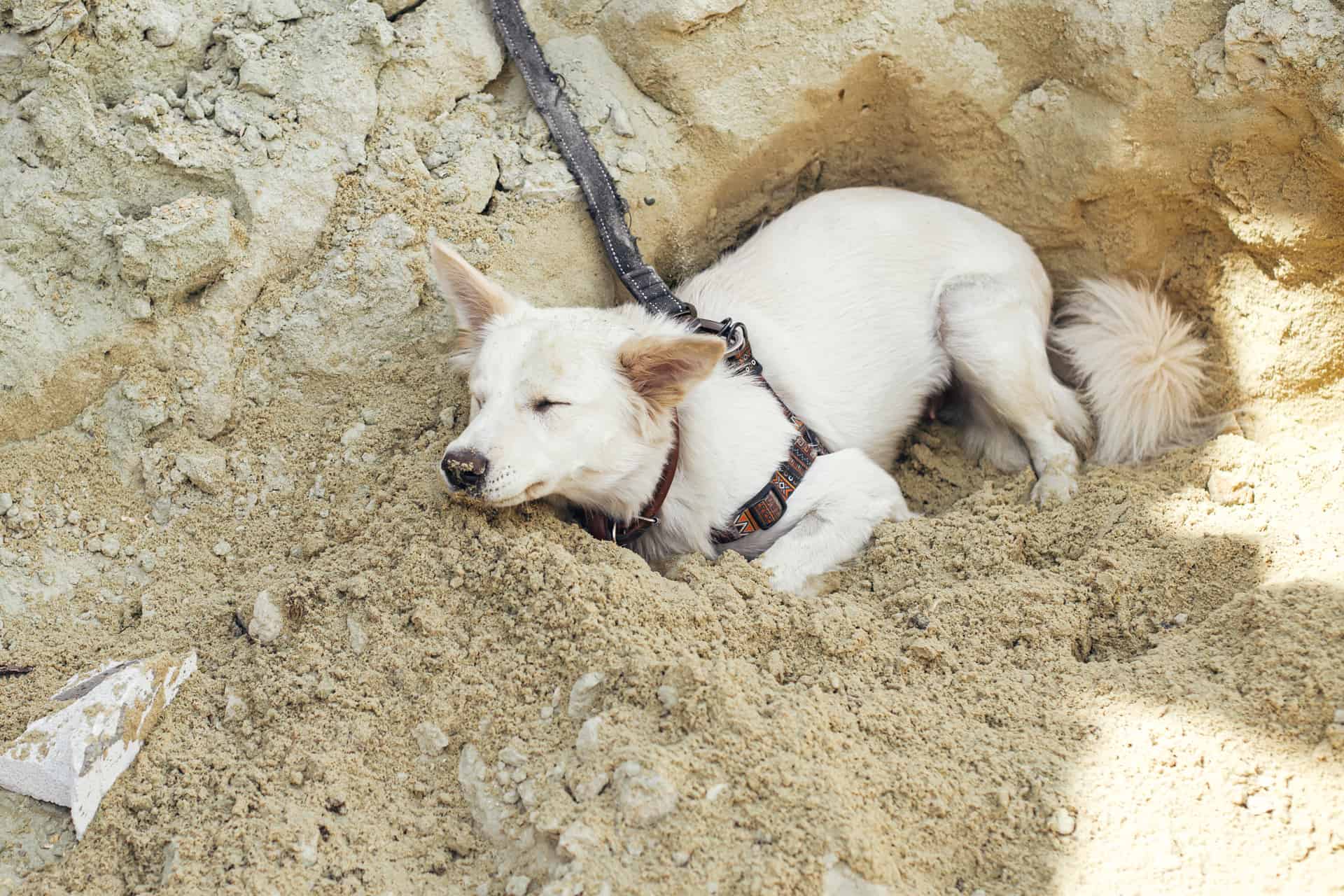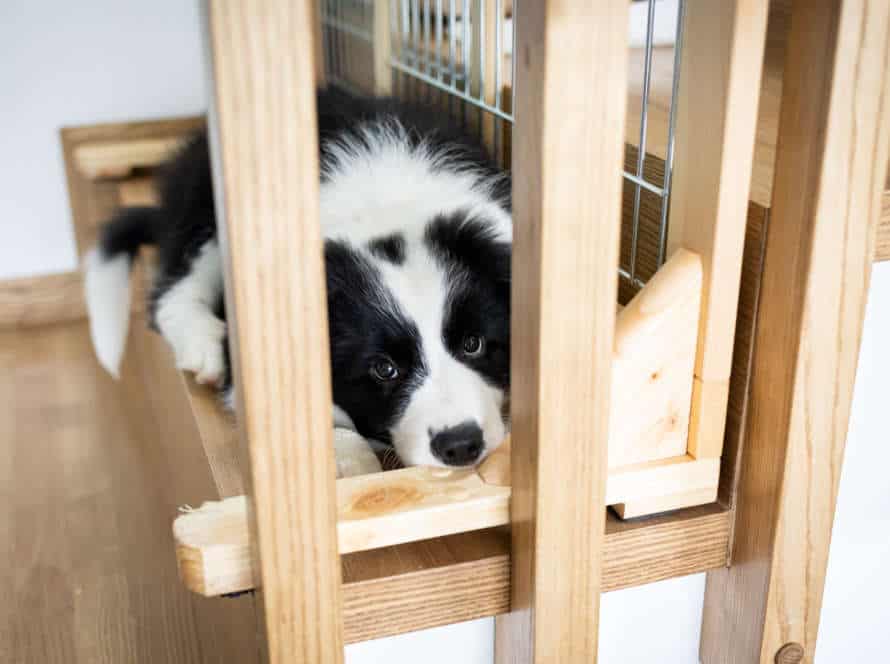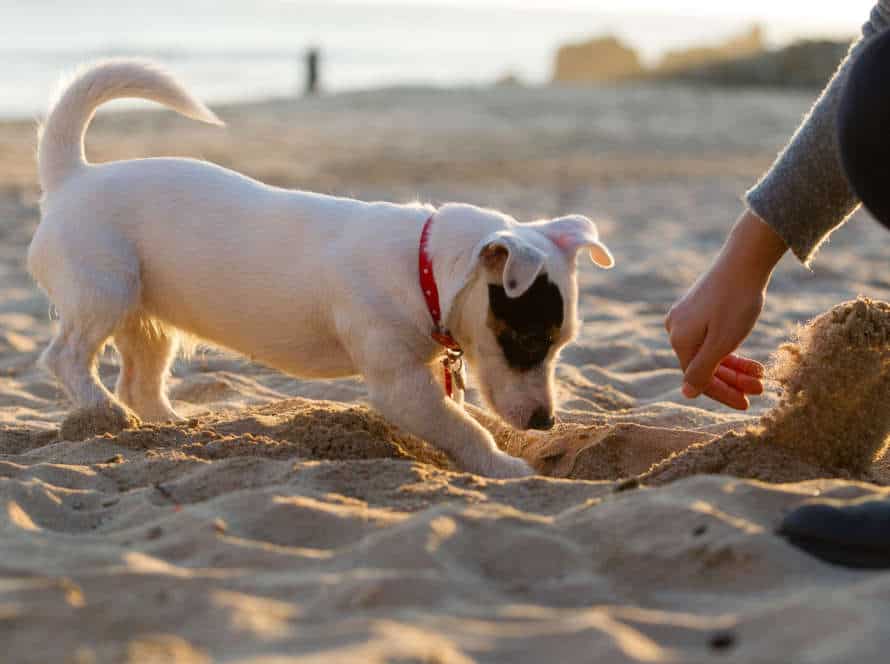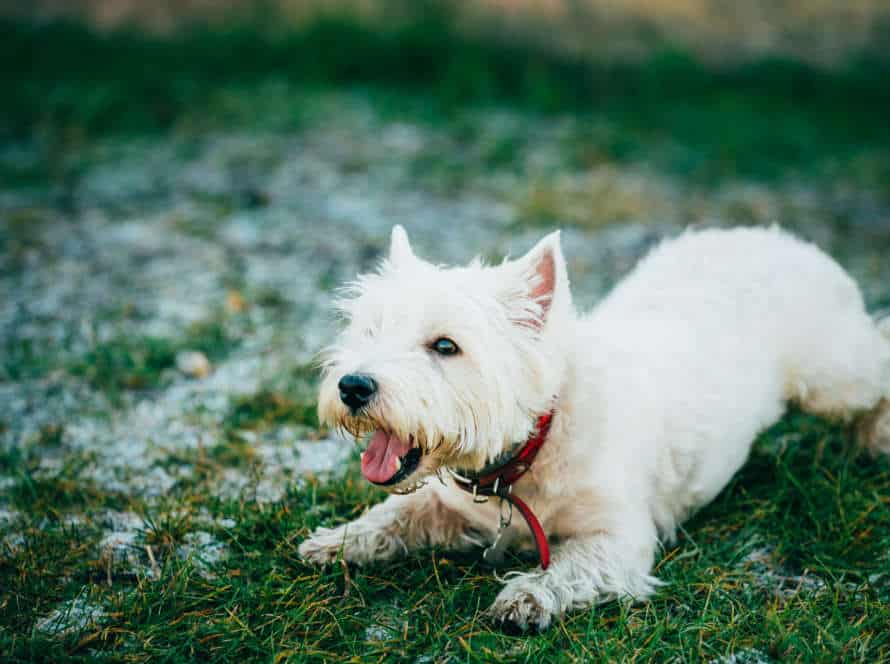The Science of Dogs and Digging
Digging is a behavior that dogs do. It could be out of curiosity or boredom. But, it could also mean anxiety. Research has proven that dogs with anxiety tend to dig more. This article explains how digging and anxiety are linked in dogs.
Understanding a dog’s natural desire to dig
Dogs have a natural instinct to dig which is in their DNA. It varies from breed to breed and can be affected by age, sex and temperament.
But, some dogs dig excessively. This could be caused by stress, health problems or too much energy.
To control their instinct to dig we must identify the cause and control it. Giving them a digging box or an activity that meets their needs can reduce their anxiety and help them satisfy their desire to dig. Patience and consistency are key for successfully managing a dog’s digging behavior.
Examining the benefits and risks associated with digging
Dogs naturally dig. It has benefits and risks. Digging helps them release energy, cool off and find treats. But, excess digging can damage property, create a tripping hazard, and be a sign of anxiety. Research shows that too much digging is linked to anxiety. It’s important to address the cause. Stimulating activities, toys, playtime, and interaction with your pet can help you identify what they need.
Make a designated digging area suitable for their size and behavior. This gives them an outlet and saves your garden.
The connection between digging and anxiety in dogs
Dogs can be wired to dig for various reasons. Stress and anxiety are two of them. When your pup is anxious or feeling overwhelmed, they may turn to digging. This is how anxiety and digging connect in dogs.
- Those with separation anxiety may dig out of the frustration of being left alone.
- If they are not stimulated enough, they may dig from a lack of mental and physical activity.
- Nervous or anxious dogs may dig as a form of self-soothing.
Figuring out why your dog digs can help avoid more anxiety and stress. Tip: Provide lots of stimulation and healthy ways to release energy. This can help reduce their digging and make them happier.
Managing Digging Behavior in Dogs
Dogs dig – it’s normal. But, it can also be a sign of anxiety. To understand and manage it, we need to recognize the difference between normal and anxious digging. Let’s dive in!
Recognizing signs of anxiety in dogs
Do you have a pup who loves to dig? It could be a sign of anxiety. Look out for these common signs:
- Pup barking, whining, or whimpering too much?
- Pacing or being restless?
- Panting or drooling?
- Hiding or cowering?
- Destructive behaviour such as digging or chewing?
- Decreased appetite or weird eating habits?
If you spot any of these, it’s best to act quickly. Get help from a vet or pet behaviourist to work out what’s causing the anxiety, and how to manage it.
Training techniques to discourage digging behavior
Digging is a natural and instinctive action in dogs, which can be hard to stop. But, there are a few coaching practices that can help manage the digging behavior and soothe anxiousness.
- Firstly, give your dog a particular area for digging in your garden, such as a sandpit or a corner of the backyard, to guide their digging to an appropriate spot.
- Secondly, make the restricted areas unattractive to stop digging. Use rocks, bricks, or chicken wire to prevent easy digging.
- Thirdly, watch your dog’s outdoor activities and gently stop the digging when you spot it. Do physical activities or play games with your pup to get rid of the energy.
- Lastly, give your dog a peaceful and ordered environment to lower anxiety, which could be inciting their digging behavior. Consistency and positive reinforcement are necessary to stop digging.
Pro Tip: Give toys with riddle-like elements to distract and stop anxious behavior in dogs.
Positive reinforcement strategies to encourage desirable behavior
Positive reinforcement is a great way to get dogs to do what you want, especially if they’re digging because they’re anxious. Here are some tips to help:
- Praise them: When they do something you want, like not digging, give them verbal cues or treats. This will show them good behavior gets rewards.
- Distract them: Give them toys and activities to stop them from digging. Hide treats and toys for them to find instead.
- Make a spot: Set up an area in the yard with soft soil or sand. Teach them to only dig here and reward them when they do.
It’s important to be consistent with positive reinforcement. If the digging is caused by anxiety, get a professional dog trainer or vet to help manage it.
Alternative Solutions for Anxious Dogs
Digging can be a sign of anxiousness in pooches. Yet, it can be difficult to handle if your pup is especially anxious or has a habit of digging. Thankfully, there are other solutions that can help with nervous behavior in dogs. Let’s look at some of these options and see how useful they are!
Creating a comfortable living space for anxious dogs
Dogs can express anxiety in many ways, like shaking, restlessness, barking, and digging. If your pooch is always digging, it could be a sign of anxiety. To help them feel better, make a soothing home for them.
Here are a few ideas:
- Provide a safe, secluded area like a crate or special spot in the house.
- Give physical comfort like petting or hugging.
- Try aromatherapy with calming scents, such as lavender or chamomile.
- Give them toys and puzzles to keep their mind occupied.
- Exercise daily to reduce pent-up energy.
- Provide a designated spot to dig and redirect their behavior.
By making a cozy space for your dog, you can help them manage their anxiety and make their life more enjoyable.
Providing environmental stimulation and exercise
Anxiety in dogs can be a serious issue. To reduce it, environmental stimulation and exercise can help. Here are a few things you can do:
- Ensure your pup gets enough playtime and outdoor activities. Physical activity can reduce anxiety and give them an outlet.
- Give your dog a chance to sniff and explore their environment. This lets them interpret the world around them.
- Provide interactive toys that challenge their minds. Puzzle feeders, fetch toys, and treat-dispensing balls can help.
- Create a den-like space for when they feel anxious. It should be quiet, comfy, and have calming music and scents.
By stimulating their environment and giving them exercise, you can reduce their anxiety and improve their quality of life.
Seeking professional veterinary assistance for anxiety management.
Professional veterinary aid is essential for managing doggy anxiety. Anxiety can lead to destructive actions like digging, which can harm your pup’s health. A vet can identify the source of your pup’s anxiety and create a treatment plan that includes:
- Medication: Anti-anxiety meds can reduce symptoms and improve overall wellness.
- Behavioral training: Positive reinforcement and desensitization can help your pup manage anxiety triggers.
- Alternative therapies: Acupuncture, massage, and CBD oil can also offer aid in managing anxiety.
Don’t wait to get help for your anxious canine – ensure they live a healthy and happy life.
Frequently Asked Questions
1. Why do dogs dig when they’re anxious?
Dogs often dig when they’re anxious as a coping mechanism or to release pent-up energy. This behavior can also be a way for them to self-soothe and alleviate stress.
2. Is digging a sign that my dog has anxiety?
Digging can be a sign that your dog has anxiety, but it’s not always the case. Other signs of anxiety in dogs include excessive barking, destructive behavior, pacing, and trembling.
3. How can I help my anxious dog stop digging?
There are several strategies pet owners can use to help their anxious dog stop digging. Providing more exercise and mental stimulation, decreasing sources of anxiety, and using training techniques to redirect the behavior are all effective options.
4. What breeds of dogs are more prone to anxiety and digging?
While any breed of dog can experience anxiety and engage in digging behavior, some breeds are more prone to these issues. These include terriers, hounds, and hunting breeds.
5. Should I punish my dog for digging when anxious?
No, it’s not appropriate to punish your dog for digging when they’re anxious. It’s important to address the underlying cause of their anxiety and work on strategies to alleviate it.
6. When should I seek the help of a professional for my dog’s anxiety and digging?
If your dog’s anxiety and digging are severe, or if you have tried multiple strategies without success, it may be time to seek the help of a professional. A veterinarian or certified dog behaviorist can help develop a personalized plan to address your dog’s needs.







